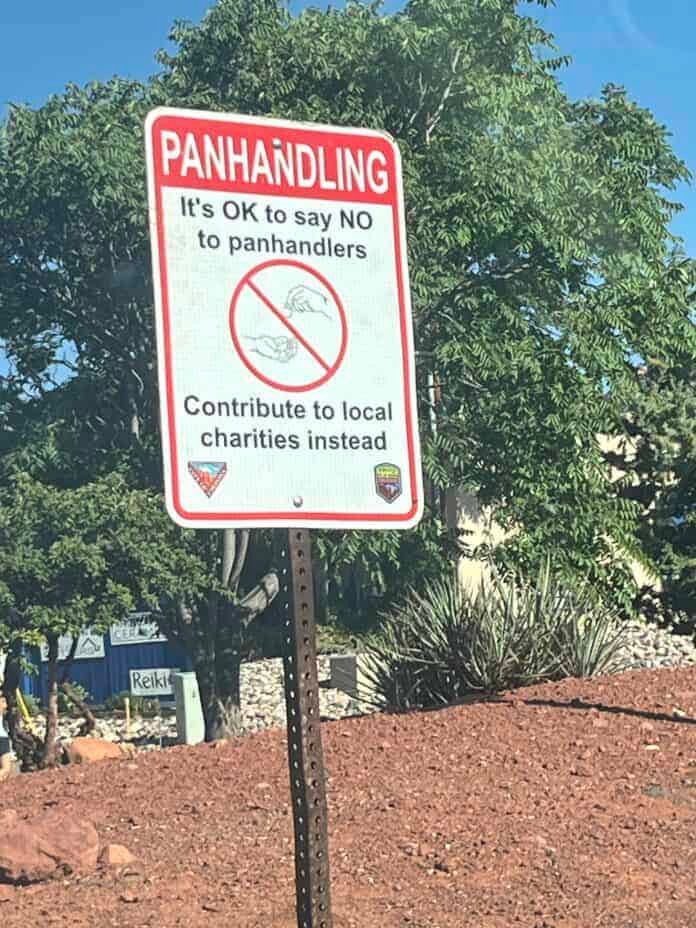Sedona and Cottonwood Install Anti-Panhandling Signs
Sedona has teamed up with Cottonwood to put up signs discouraging residents from giving money to panhandlers. The initiative aims to direct charitable contributions elsewhere.
The message from the Sedona Police Station reads, “It’s OK not to give to panhandlers,” mirroring Cottonwood’s earlier campaign launched on July 22, led by CPD officer James Repp, who previously worked in outreach.
A notable difference between the two cities is that Cottonwood’s signs point towards the Cottonwood Cares Organization. This group is a collaboration involving the City of Cottonwood, the Greater Cottonwood Chamber of Commerce, Verde Valley Habitat for Humanity, and a former Methamphetamine Advisory Task Force.
In contrast, Sedona’s signs don’t specify organizations, simply encouraging people to “contribute to local charities instead.” According to Patrol CMDR Chris Dowell, this approach was taken to allow individuals to choose their preferred charities, maintaining neutrality.
It’s interesting to note that Dowell has a background with the Cottonwood City Council and has served as an interim police chief before moving to Sedona.
We reached out to the Sedona Regional Homeless Alliance for their insights, but they opted not to comment on the matter. This leaves some uncertainty regarding how local advocates perceive the new signage’s impact on homelessness in Sedona.
Critics on social media have pointed out that, rather than tackling the root issues, cities are opting for signage that doesn’t resolve the underlying concerns.
However, Dowell emphasized that this initiative does not criminalize panhandling, which is protected under the First Amendment. A pivotal 2015 U.S. Supreme Court ruling in Reed v. Gilbert determined that governments cannot restrict signs based on their content, raising questions about any ordinances that could infringe on free speech rights.
The ruling stemmed from a case involving temporary signs for a community church, which later extended to cover panhandlers displaying requests for money or food.
In light of this ruling, a federal judge found two anti-panhandling regulations unconstitutional in Massachusetts, siding with the ACLU.
To summarize, a blanket ban on panhandling is against the First Amendment, while Arizona law already prohibits “active panhandling.” The definition of “aggressive panhandling” separates it from regular solicitation, targeting behavior that could threaten or harass individuals.
It’s somewhat contradictory that Sedona introduced these signs shortly after proposing a safe parking area for homeless workers at Sedona Cultural Park. There’s still uncertainty about whether these anti-panhandling signs will lead to a genuine increase in support for local charities focused on helping the homeless.
Despite Cottonwood’s efforts, it remains undetermined if the signs will effectively reduce panhandling, as many panhandlers coexist with the signage, continuing to ask for donations from those passing by.







